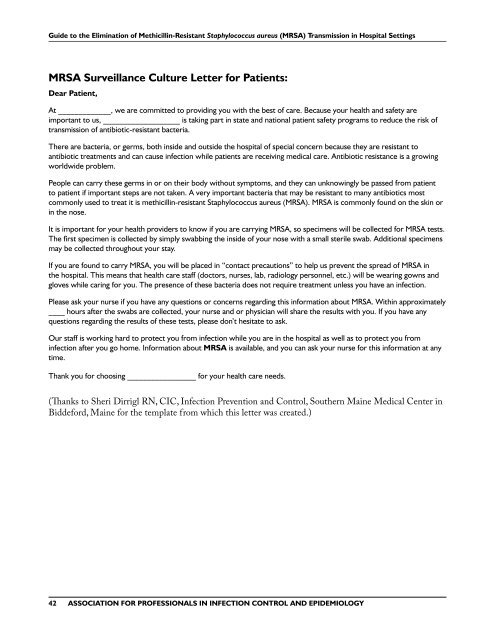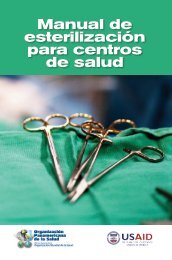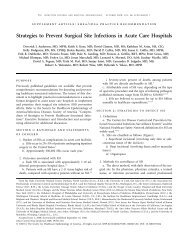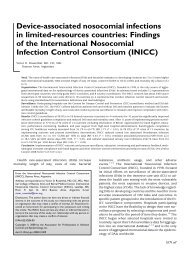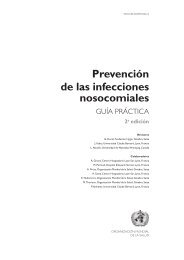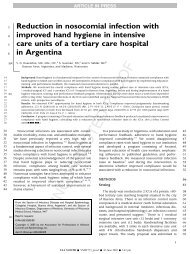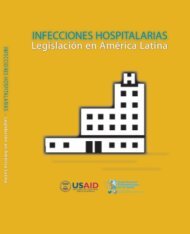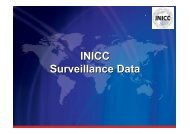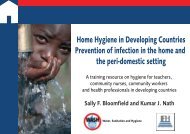APIC MRSA Elimination Guideline
APIC MRSA Elimination Guideline
APIC MRSA Elimination Guideline
You also want an ePaper? Increase the reach of your titles
YUMPU automatically turns print PDFs into web optimized ePapers that Google loves.
Guide to the <strong>Elimination</strong> of Methicillin-Resistant Staphylococcus aureus (<strong>MRSA</strong>) Transmission in Hospital Settings<strong>MRSA</strong> Surveillance Culture Letter for Patients:Dear Patient,At _____________, we are committed to providing you with the best of care. Because your health and safety areimportant to us, ___________________ is taking part in state and national patient safety programs to reduce the risk oftransmission of antibiotic-resistant bacteria.There are bacteria, or germs, both inside and outside the hospital of special concern because they are resistant toantibiotic treatments and can cause infection while patients are receiving medical care. Antibiotic resistance is a growingworldwide problem.People can carry these germs in or on their body without symptoms, and they can unknowingly be passed from patientto patient if important steps are not taken. A very important bacteria that may be resistant to many antibiotics mostcommonly used to treat it is methicillin-resistant Staphylococcus aureus (<strong>MRSA</strong>). <strong>MRSA</strong> is commonly found on the skin orin the nose.It is important for your health providers to know if you are carrying <strong>MRSA</strong>, so specimens will be collected for <strong>MRSA</strong> tests.The first specimen is collected by simply swabbing the inside of your nose with a small sterile swab. Additional specimensmay be collected throughout your stay.If you are found to carry <strong>MRSA</strong>, you will be placed in “contact precautions” to help us prevent the spread of <strong>MRSA</strong> inthe hospital. This means that health care staff (doctors, nurses, lab, radiology personnel, etc.) will be wearing gowns andgloves while caring for you. The presence of these bacteria does not require treatment unless you have an infection.Please ask your nurse if you have any questions or concerns regarding this information about <strong>MRSA</strong>. Within approximately____ hours after the swabs are collected, your nurse and or physician will share the results with you. If you have anyquestions regarding the results of these tests, please don’t hesitate to ask.Our staff is working hard to protect you from infection while you are in the hospital as well as to protect you frominfection after you go home. Information about <strong>MRSA</strong> is available, and you can ask your nurse for this information at anytime.Thank you for choosing _________________ for your health care needs.(Thanks to Sheri Dirrigl RN, CIC, Infection Prevention and Control, Southern Maine Medical Center inBiddeford, Maine for the template from which this letter was created.)42ASSOCIATION FOR PROFESSIONALS IN INFECTION CONTROL AND EPIDEMIOLOGY


